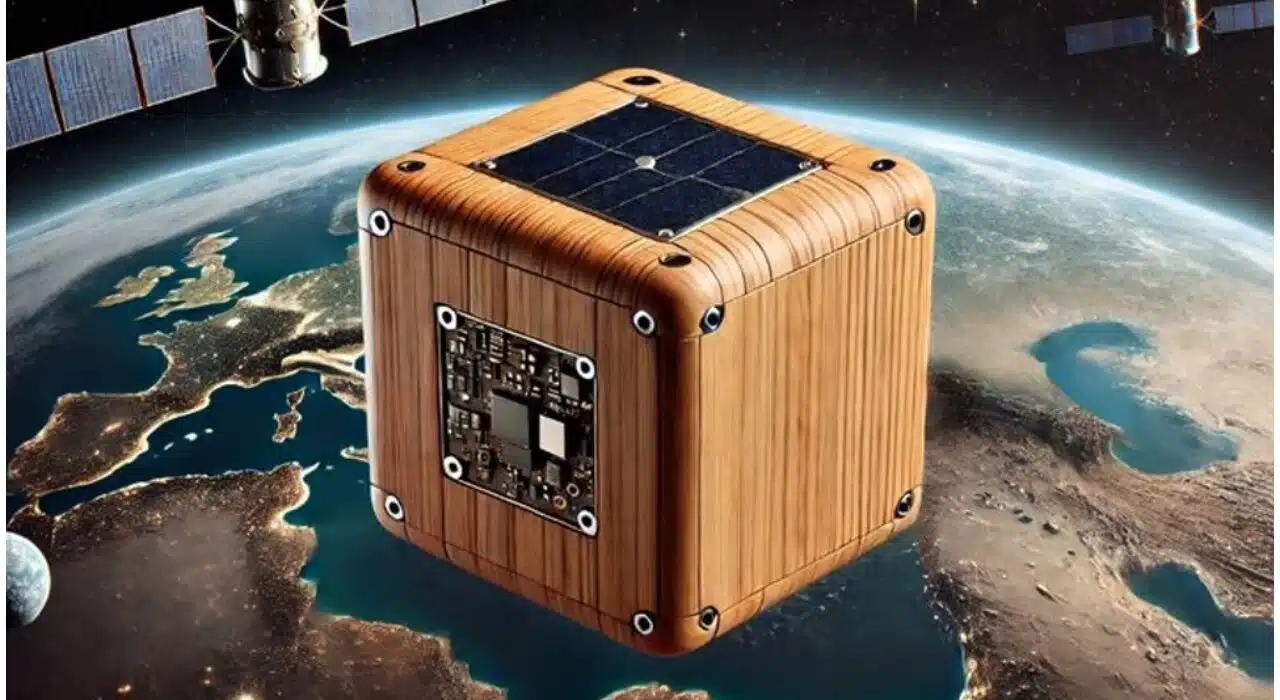LignoSat is the world’s first wooden satellite, and it made it into Earth orbit. It is one among five CubeSats that have started orbiting the Earth at 400 km above Earth. LignoSat started its journey last November when a SpaceX Dragon cargo capsule delivered it to the International Space Station.
LignoSat: A Game-Changer in Sustainable Satellites
Developed jointly by Kyoto University and Sumitomo Forestry, LignoSat is made out of honoki magnolia wood panels. Measuring 10 cm in length, the wooden panels are joined in a traditional wood-joinery technique without needing screws or adhesives. Weighing only 900 grams, the satellite is taking a bold step for eco-friendly space exploration.
LignoSat will test the durability of wood in extreme space conditions during its six-month mission. Unlike conventional satellites made from materials like aluminum and titanium, LignoSat aims to demonstrate wood’s potential as a sustainable alternative.
Testing World’s First Wooden Satellite Feasibility
Mounted with sensors, LignoSat will be able to measure temperature fluctuations and radiation as it is switched between darkness and sunlight every 45 minutes. These dramatic variations, from -100°C to 100°C, will elucidate how wood endures the brutal space environment. The satellite will also test how well wood can protect sensitive technologies from geomagnetic forces, essentially whether wood is appropriate for missions on the moon and Mars.
According to Takao Doi, former astronaut and current researcher at Kyoto University, this innovation may provide the possibility of using timber for sustainable habitats in space. While wood on Earth would degrade because of water or oxygen, it will be an eternal material in space.
Dealing with Space Debris
Wooden satellites like LignoSat could be the answer to the increasing problem of space debris. Unlike traditional satellites, which emit harmful aluminum oxide during re-entry, wooden satellites burn up completely, leaving no long-lasting waste.
LignoSat’s success may redefine how we approach sustainability in space exploration and inspire future missions to embrace eco-friendly materials.
Also, see: Bitcoin drops below $98,000: Here is why

1 Comment